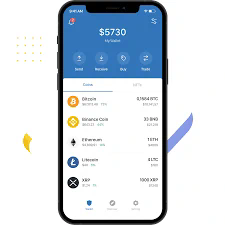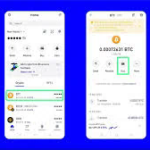Does Trust Wallet Need ID Verification? A Comprehensive Analysis
### Introduction to Trust Wallet
Trust Wallet is a decentralized cryptocurrency wallet that has gained significant popularity among crypto enthusiasts. Acquired by Binance in 2018, it allows users to store various cryptocurrencies securely, including Ethereum and ERC20 tokens, Bitcoin, and many others. Unlike centralized exchanges, Trust Wallet emphasizes user privacy and security, often appealing to those who prioritize control over their digital assets. This brings us to a pertinent question: does Trust Wallet require ID verification? To answer this question, we need to dig deeper into the fundamentals of decentralized wallets and the nuances of ID verification in the crypto space.
### Understanding Decentralized Wallets
Before we explore the ID verification aspect, it’s essential to understand what a decentralized wallet is and how it operates. Decentralized wallets function without a central authority, meaning users have full control of their private keys. This control is a double-edged sword; while it provides autonomy and privacy, it also places the onus of security and responsibility entirely on the user. There are no banks or intermediary entities that hold your funds, which means that if you lose your private keys or recovery phrases, you lose access to your crypto assets permanently.
### The Nature of ID Verification in Crypto
ID verification, often referred to as Know Your Customer (KYC), is a process used by many financial institutions and exchanges to verify the identity of their clients. This process includes submitting government-issued IDs, proof of address, and sometimes even biometric data. KYC is generally employed to prevent fraudulent activities, money laundering, and other financial crimes. However, this necessity clashes with the ethos of decentralization and privacy embraced by many cryptocurrency users.

### Does Trust Wallet Implement ID Verification?
Trust Wallet does not require ID verification for its standard wallet functionalities. Users can download the app, create a wallet, and start transacting without submitting any personal information. This aspect of Trust Wallet makes it particularly appealing to users who prioritize privacy and wish to avoid the lengthy and often cumbersome KYC processes found in centralized exchanges.
### Privacy Concerns and User Autonomy
The absence of ID verification fundamentally enhances user privacy. Trust Wallet users can transact without the fear of their personal information being exposed or compromised. This feature is crucial given the increasing instances of data breaches in centralized platforms. Users can remain anonymous to the broader public while controlling their assets, with their transactions only visible on the blockchain, which does not inherently tie back to their real-world identity.
### Security Features of Trust Wallet
While Trust Wallet does not require KYC, it does implement robust security features to protect its users’ assets. The wallet is non-custodial, meaning that private keys are stored locally on the user’s device. This decentralization is critical because it eliminates the risk associated with centralized storage solutions, where hackers specifically target these platforms for vulnerabilities. Additionally, Trust Wallet employs encryption and biometric authentication to enhance security further, giving users peace of mind as they engage in transactions.
### Limitations of Not Having ID Verification
Despite the benefits of bypassing KYC, the absence of ID verification with Trust Wallet does come with limitations. For instance, users cannot directly purchase cryptocurrencies with fiat currencies through Trust Wallet without utilizing a third-party service that may require KYC. This limitation can lead to added complexity for users who want to convert their traditional currency into crypto. Furthermore, if users wish to withdraw their funds to a fiat system or trade on a regulated exchange, they may eventually need to undergo ID verification, thereby introducing complications into their workflow.
### Regulatory Landscape for Cryptocurrency Wallets
The regulatory landscape for cryptocurrencies and wallets like Trust Wallet varies significantly around the globe. Some countries have introduced stringent regulations requiring KYC procedures to enhance financial oversight and prevent illicit activities. In contrast, other regions maintain a more lenient stance toward cryptocurrencies, allowing for greater privacy and autonomy in transactions. Users must consider their local regulations when using Trust Wallet, as compliance requirements may impact their ability to utilize the wallet seamlessly.
### User Experience: Trust Wallet vs. Centralized Exchanges
The user experience between Trust Wallet and centralized exchanges highlights the trade-offs between privacy and convenience. Centralized exchanges often provide user-friendly interfaces, easy fiat integration, and customer support services. However, users must sacrifice some level of privacy and undergo KYC processes. In contrast, Trust Wallet offers more control and privacy but may lack the seamless integration with fiat payment systems that centralized exchanges provide. Users must choose the platform that best aligns with their priorities—be it privacy or convenience.
### Alternatives to ID Verification in Trust Wallet
While Trust Wallet does not require ID verification, users looking to buy cryptocurrencies using fiat currencies can use third-party services that operate in tandem with the wallet. Services like Simplex or MoonPay may allow users to purchase crypto with a credit card or bank transfer, but these services typically require KYC processes. This is an essential consideration for users who value privacy but wish to transact using fiat. Understanding how to navigate these services can enhance the user experience while still prioritizing personal privacy.
### Conclusion: The Future of ID Verification in Crypto
As the cryptocurrency ecosystem continues to evolve, so does the conversation around ID verification and privacy. Trust Wallet’s approach to not requiring ID verification aligns seamlessly with the vision of decentralized finance (DeFi), prioritizing user empowerment and autonomy. However, users must remain informed about the regulatory landscape and the implications of using decentralized wallets.
In summary, while Trust Wallet provides an excellent avenue for managing cryptocurrencies without ID verification, users should remain aware of the inherent limitations, particularly concerning fiat transactions. With the ongoing development and changes in regulations, the need for a careful balance between privacy, security, and convenience will shape the future of ID verification in the cryptocurrency space. Users must stay vigilant, necessary adjustments to their strategies, and continue to educate themselves as they navigate this dynamic landscape.


